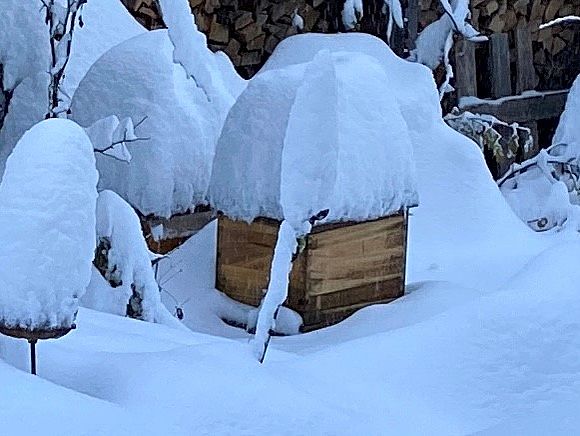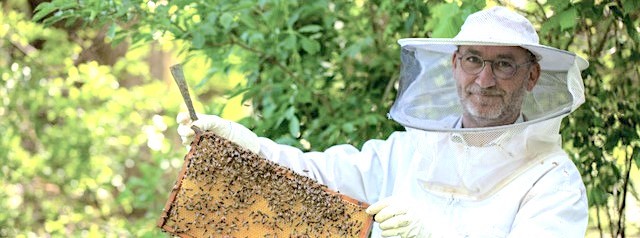Dear bee friends,
I hope my bee journal finds you in good health.
And how are the bees?
Well, some colonies were already too weak and unfortunately didn't survive the early onset of winter.
However, my 19 colonies are still doing well and are already busy collecting pollen from the hazelnuts, crocuses and now also from the palm catkins.
After the much too warm - actually winter month - of February, the vegetation is already much further along than in recent years and the bee colonies must already be growing significantly in order to be strong enough to collect the nectar at flowering time.
We will probably have to adjust to this phenomenon, as I have already observed the clear effects of climate change in recent years.
For the bees, as I said, this means that the winter is shorter - although not completely free of frost and snow - and the vegetation starts earlier. This doesn't seem to be a problem at first, but the time when it typically flowers here comes earlier and is over sooner.
For us, this means that fruit and dandelions are increasingly flowering at the same time and, due to the higher temperatures, are fading again more quickly. Alongside rapeseed, these are our honey plants for the spring blossom honey that is so popular with children.
As a beekeeper, I therefore try to keep the bee colonies as warm as possible as early as February with bottom frames and an additional side frame for better insulation. This may encourage the queen to lay more eggs a little earlier. At best, the colony will already be strong enough at the start of the fruit blossom to collect the important nectar not only for itself but also for us. Then we can only hope that there will be no more frost, which would destroy the blossoms and thus the nectar supply.
Of course, we are all responsible for ensuring that the bees always find food from spring to fall. Whether wild or honey bees. They urgently need it and will thank us for it. Every blossom counts, perhaps even from plants that were previously not so native and that cope better with drought and heat in summer.
So far, the bees have always found an alternative source of energy. When the dandelions and rapeseed froze, they flew into the forest and found and collected leaf honey earlier than usual.
Even if the quantity may no longer be sufficient for a honey harvest, I will not stop looking after our bees.
Many thanks in this context to all the bee sponsors who are supporting me!
So let's stay confident and, like the bees, make the best of it.
Your beekeeper
Michael Ruhdorfer





